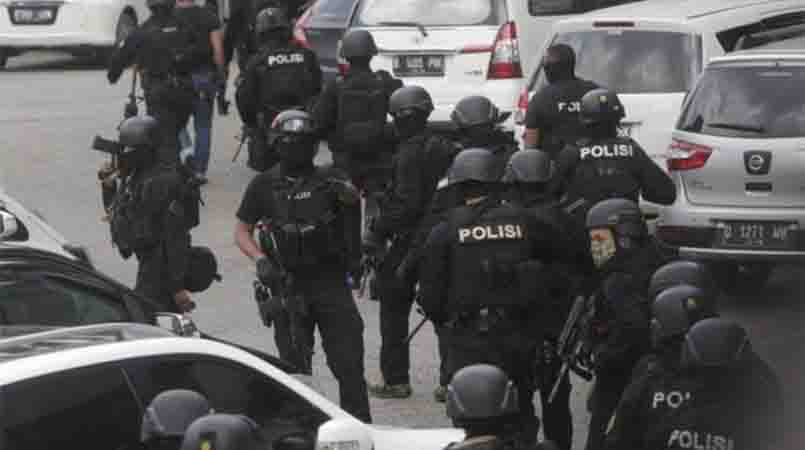
A series of bomb blasts have rocked the Indonesian capital, Jakarta, and there is continuing gunfire and reports of further explosions on the streets.
At least six people have been killed by the blasts, which hit several locations including a shopping centre.
Police say they believe more than a dozen attackers were involved. Some are still at large and have been exchanging fire with security forces.
President Joko Widodo has called for calm but condemned the "act of terror".
"We all are grieving for the fallen victims of this incident, but we also condemn the act that has disturbed the security and peace and spread terror among our people," he said.
There is no indication yet of who might be behind the assault. Indonesia has been attacked by Islamist militant groups in the past and was on high alert over the new year period after threats from the so-called Islamic State.
Images from the scene showed bodies lying on the road as well as seriously injured people being carried away. BBC Indonesian reporter, Jerome Wirawan, who is at the scene, said police had cordoned off the area.
There have been sporadic reports of further explosions and exchanges of gun fire, even as members of the public took shelter behind police cordons.
A UN official, Jeremy Douglas, told the BBC he was about 150m away from one of the first blasts near the UN's building.
"Then we ran into the building. We heard a third explosion. We got up to our office on the tenth floor and we heard a fourth, a fifth and a sixth."
In one incident eyewitnesses say at least three attackers entered a Starbucks cafe in the area, which is close to several embassies, and detonated explosives before opening fire.
A Reuters photographer said police appeared to be aiming guns at a man on the roof of the building.
Jakarta police have been saying for some time that an attack on Indonesian soil may be just a matter of time.
Although it isn't yet clear who is behind these attacks, they appear designed to elicit maximum damage.
Although no-one has claimed responsibility for these attacks, in the last few years there have been anywhere between 150-200 Indonesians who it is thought have gone to Syria to fight with IS.
Many have since returned and the police have thought that they might be preparing an attack in Indonesia.
Indonesia is the world's most populous Muslim nation but by and large is secular, although in recent years the threat of radicalism has remained high as small networks of militants are still thought to be operating in the country.
